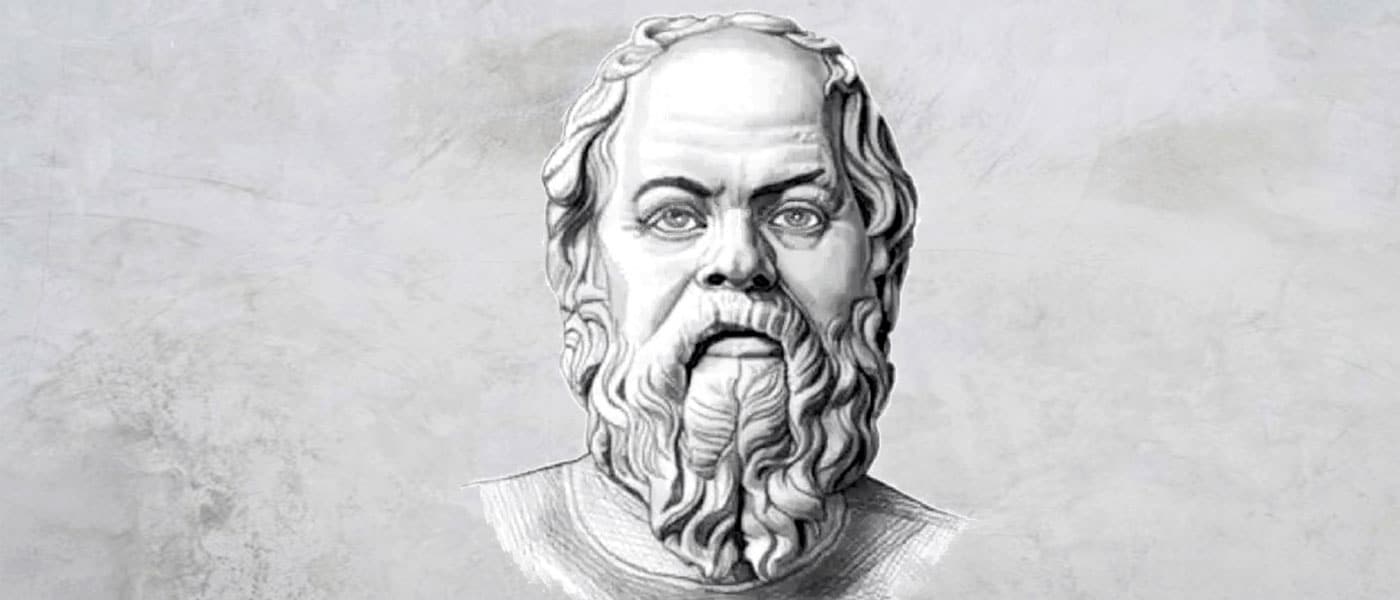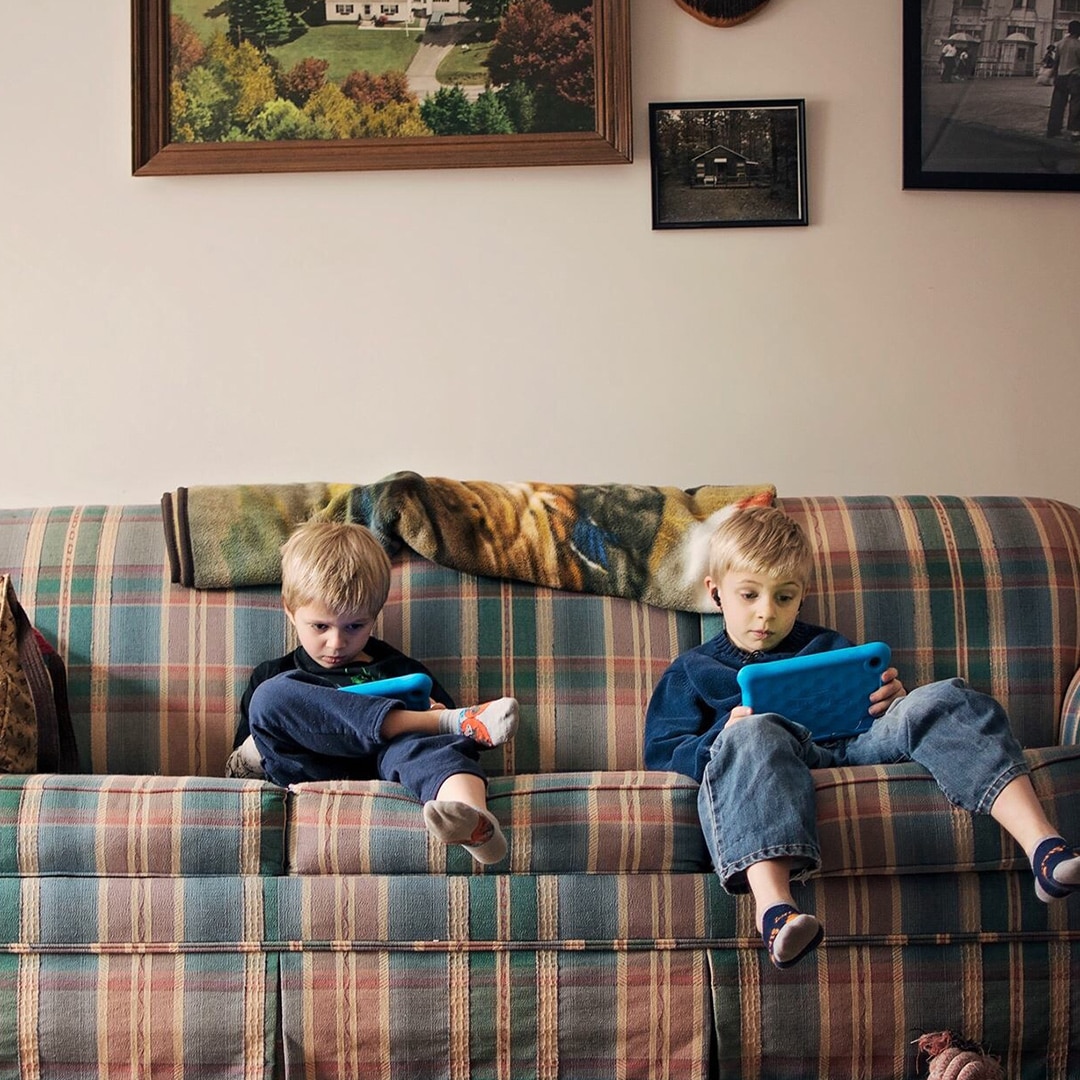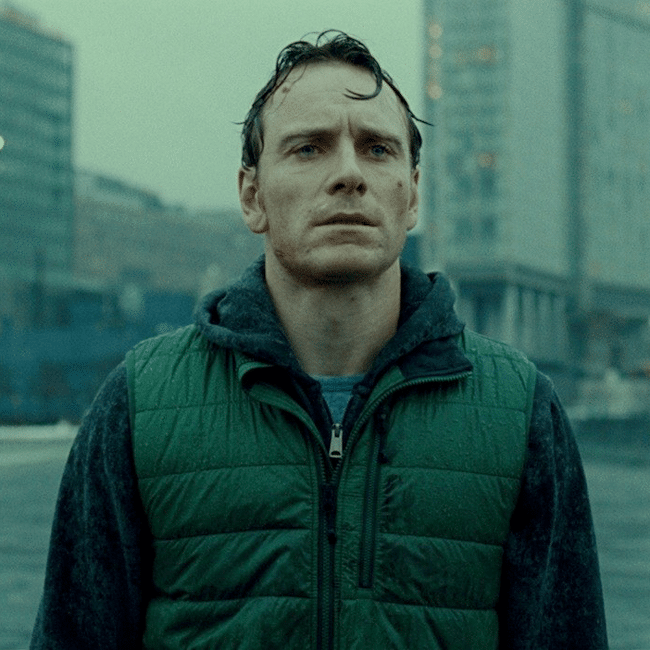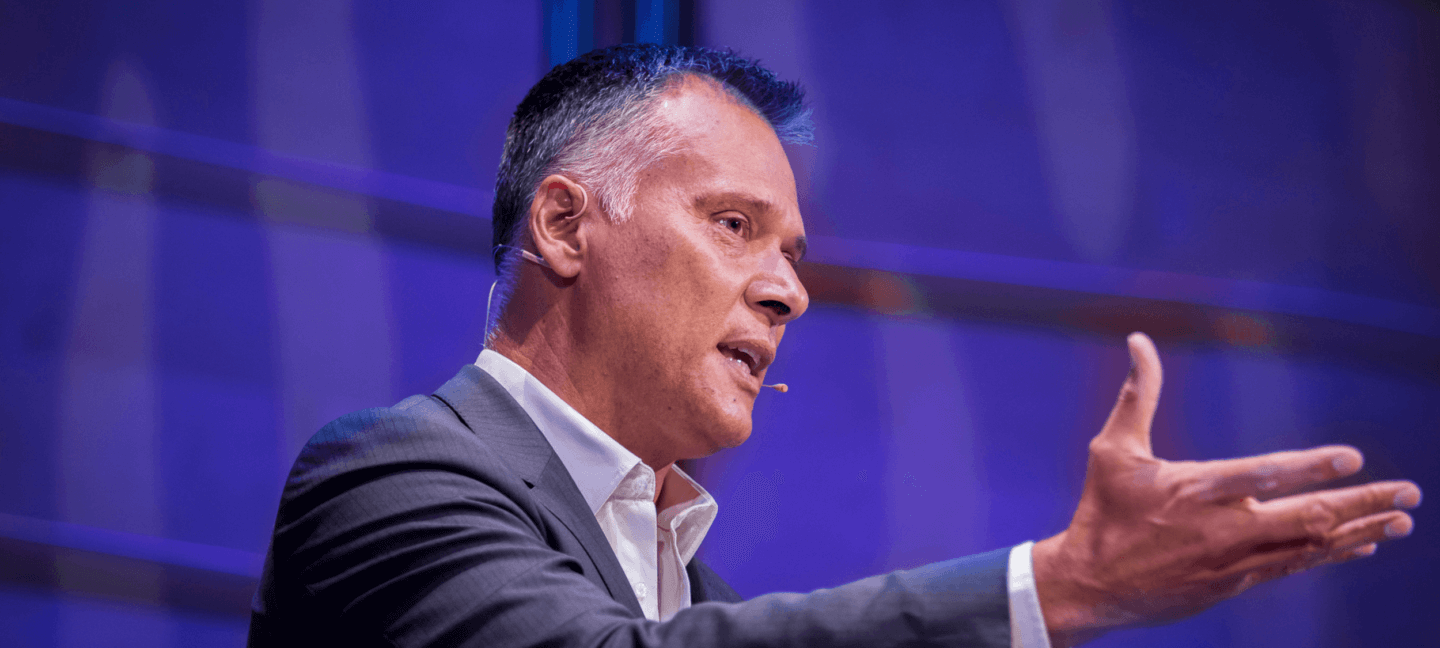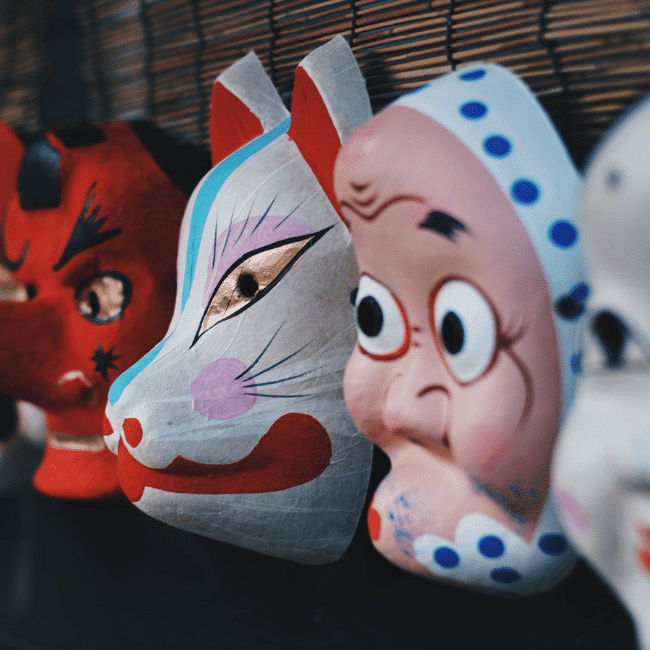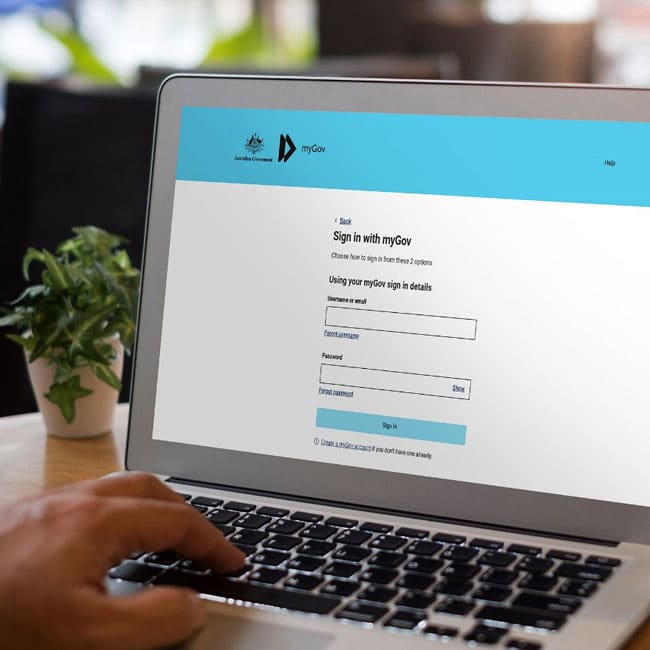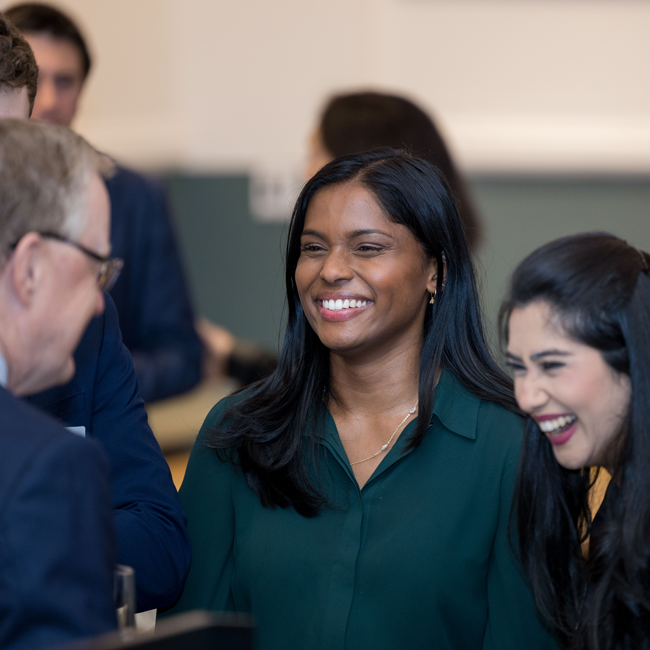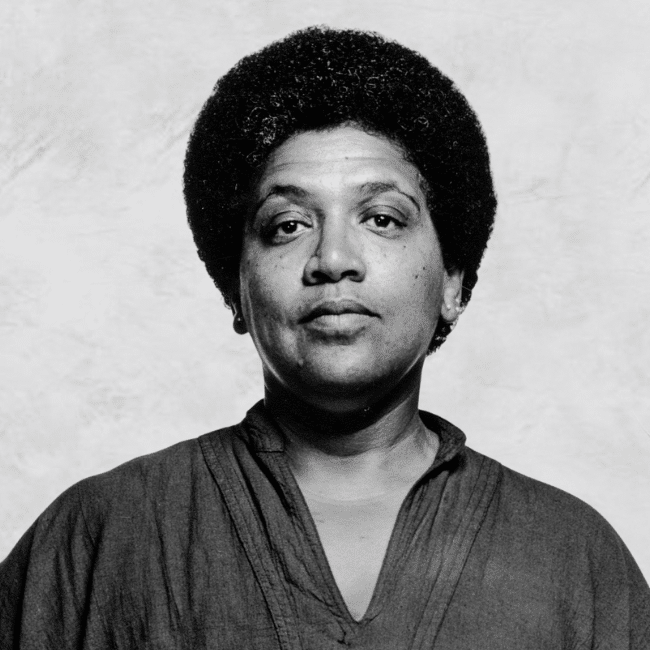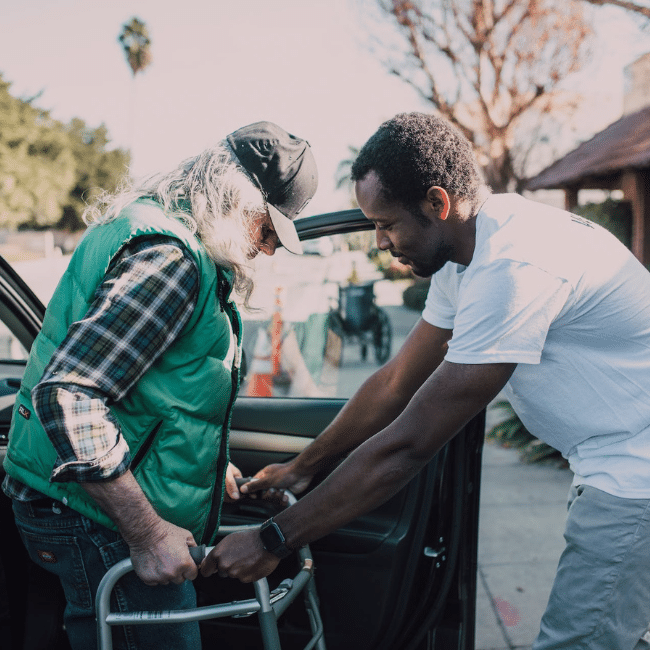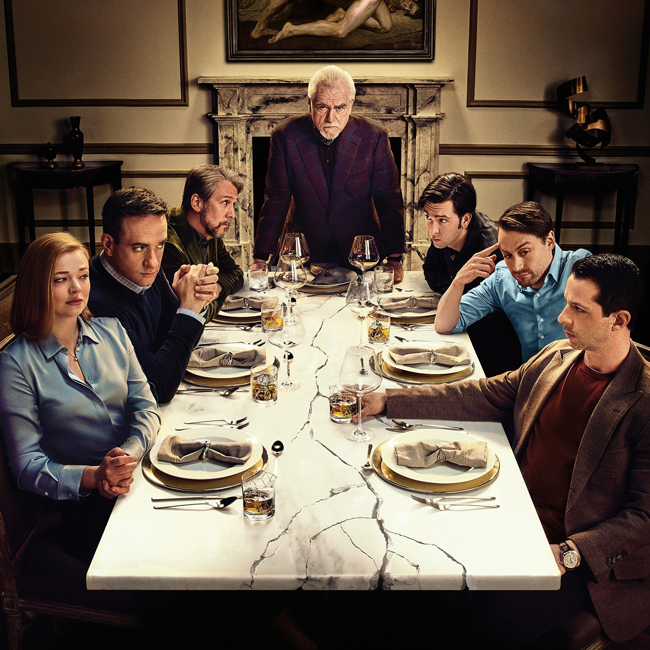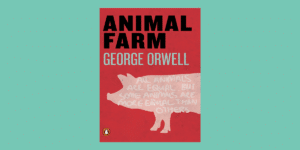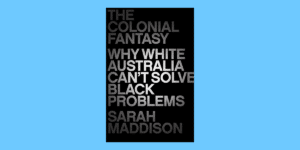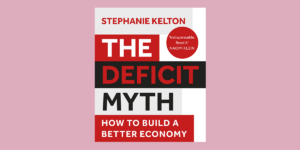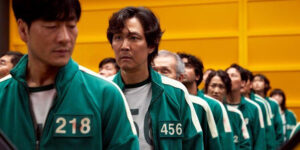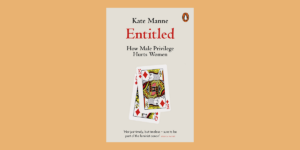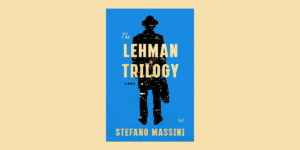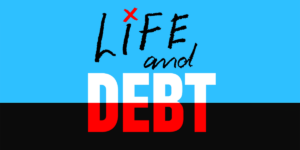Ethics Explainer: Shame

Flushed cheeks, lowered gaze and an interminable voice in your head criticising your very being.
Imagine you’re invited to two different events by different friends. You decide to go to one over the other, but instead of telling your friend the truth, you pretend you’re sick. At first, you might be struck with a bit of guilt for lying to your friend. Then, afterwards, they see photos of you from the other event and confront you about it.
In situations like this, something other than guilt might creep in. You might start to think it’s more than just a mistake; that this lie is a symptom of a larger problem: that you’re a bad, disrespectful person who doesn’t deserve to be invited to these things in the first place. This is the moral emotion of shame.
Guilt says, “I did something bad”, while shame whispers, “I am bad”.
Shame is a complicated emotion. It’s most often characterised by feelings of inadequacy, humiliation and self-consciousness in relation to ourselves, others or social and cultural standards, sometimes resulting in a sense of exposure or vulnerability, although many philosophers disagree about which of these are necessary aspects of shame.
One approach to understanding shame is through the lens of self-evaluation, which says that shame arises from a discrepancy between self-perception and societal norms or personal standards. According to this view, shame emerges when we perceive ourselves as falling short of our own expectations or the expectations of others – though it’s unclear to what extent internal expectations can be separated from social expectations or the process of socialisation.
Other approaches lean more heavily on our appraisal of social expectations and our perception of how we are viewed by others, even imaginary others. These approaches focus on the arguably unavoidably interpersonal nature of shame, viewing it as a response to social rejection or disapproval.
This social aspect is such a strong part of shame that it can persist even when we’re alone. One way to exemplify this is to draw similarity between shame and embarrassment. Imagine you’re on an empty street and you trip over, sprawling onto the path. If you’re not immediately overcome with annoyance or rage, you’ll probably be embarrassed.
But there’s no one around to see you, so why?
Similarly, taking the example we began with, imagine instead that no one ever found out that you lied about being sick. It’s possible you might still feel ashamed.
In both of these cases, you’re usually reacting to an imagined audience – you might be momentarily imagining what it would feel like if someone had witnessed what you did, or you might have a moment of viewing yourself from the outside, a second of heightened self-awareness.
Many philosophers who take this social position also see shame as a means of social control – notably among them is Martha Nussbaum, known for her academic career highlighting the importance of emotions in philosophy and life.
Nussbaum argues that shame is very often ‘normatively distorted’, in that because shame is reactive to social norms, we often end up internalising societal prejudices or unjust beliefs, leading to a sense of shame about ourselves that should not be a source of shame. For example, people often feel ashamed of their race, gender, sexual orientation, or disability due to societal stigma and discrimination.
Where shame can go wrong
The idea of shame as a prohibitive and often unjust feeling is a sentiment shared by many who work with domestic violence and sexual assault survivors, who note that this distortive nature of shame is what prevents many women from coming forward with a report.
Even in cases where shame seems to be an appropriate response, it often still causes damage. At the Festival of Dangerous Ideas session in 2022, World Without Rape, panellist and journalist Jess Hill described an advertisement she once saw:
“…a group of male friends call out their mate who was talking to his wife aggressively on the phone. The way in which they called him out came from a place of shame, and then the men went back to having their beers like nothing happened.” Hill encourages us to think: where will the man in the ad take his shame with him at the end of the night? It will likely go home with him, perpetuating a cycle of violence.
Likewise, co-panellist and historian Joanna Bourke noted something similar: “rapists have extremely high levels of abuse and drug addictions because they actually do feel shame”. Neither of these situations seem ‘normatively distorted’ in Nussbaum’s sense, and yet they still seem to go wrong. Bourke and other panellists suggested that what is happening here is not necessarily a failing of shame, but a failing of the social processes surrounding it.
Shame opens us to vulnerability, but to sit with vulnerability and reflect requires us to be open to very difficult conversations.
If the social framework for these conversations isn’t set up, we end up with unjust shame or just shame that, unsupported, still manifests itself ultimately in further destruction.
However, this nuance is far from intuitive. While people are saddened by the idea of victims feeling shame, they often feel righteous in their assertions that perpetrators of crimes or transgressors of socials norms should feel shame, and that their lack of shame is something that causes the shameful behaviour in the first place.
Shame certainly has potential to be a force for good if it reminds us of moral standards, or in trying to avoid it we are motivated to abide by moral standards, but it’s important to retain a level of awareness that shame alone is often not enough to define and maintain the ethical playing field.

BY The Ethics Centre
The Ethics Centre is a not-for-profit organisation developing innovative programs, services and experiences, designed to bring ethics to the centre of professional and personal life.
Ethics in your inbox.
Get the latest inspiration, intelligence, events & more.
By signing up you agree to our privacy policy
You might be interested in…
Opinion + Analysis
Relationships, Society + Culture
Meet Josh, our new Fellow asking the practical philosophical questions
Big thinker
Relationships, Society + Culture
Big Thinker: Socrates
WATCH
Relationships
Virtue ethics
Opinion + Analysis
Health + Wellbeing, Relationships
This isn’t home schooling, it’s crisis schooling
Read me once, shame on you: 10 books, films and podcasts about shame

Read me once, shame on you: 10 books, films and podcasts about shame
Opinion + AnalysisSociety + Culture
BY The Ethics Centre 7 MAR 2024
Shame is something we have all experienced at some point. Of all the moral emotions, it can be the most destructive to a healthy sense of self. But do we ever deserve to feel it?
In order to unpack it’s complexities, we’ve compiled 10 books, films, series and podcasts which tackle the ethics of shame.
Jon Ronson – Shame Culture, Festival of Dangerous Ideas
Welsh journalist, Jon Ronson in his FODI 2015 talk examines the emergence of public shaming as an internet phenomenon, and how we can combat this culture. Based on his book, So You’ve Been Publicly Shamed, Ronson highlights several individuals behind high profile shaming, who after careless actions have been subject to a relentless lynch mob.
Disgrace – J. M. Coetzee
Fictional novel by South African author, J.M. Coetzee tells the story of a middle-aged Cape Town professor’s fall from grace following his forced resignation from a university after pursuing an inappropriate affair. The professor struggles to come to terms with his own behaviour, sense of self as well as his relationships around him.
The Whale
American film directed by Darren Aronofsky where a reclusive and unhealthy English teacher, hides out in his flat and eats his way to death. He is desperate to reconnect with his teenage daughter for a last chance at redemption.
The Kite Runner – Khaled Hosseini
Fictional novel by Afghan-American author, Khaled Hosseini which tells the story of Amir, a young boy from the Wazir Akbar Khan district of Kabul, and how shame can be a destructive force in an individual’s life.
World Without Rape, Festival of Dangerous Ideas
This panel discussion with Joanna Bourke, Jess Hill, Saxon Mullins, Bronwyn Penrith and Sisonke Msimang from FODI 2022 examines rape and its use in war, the home and society as an enduring part of history and modern life. The panel examines the role of shame from both a victim’s and perpetrator’s point of view and whether it is key to tackling the issue.
Muriel’s Wedding
The Australian beloved classic from P.J. Hogan portrays a young social outcast who embezzles money and attempts to fake a new life for herself.
The List – Yomi Adegoke
British fictional novel by Yomi Adegoke about a high-profile female journalist’s world that is upended when her fiancé’s name turns up in a viral social media post. The story is a timely exploration of the real-world impact of online life.
Shame
British psychological drama directed by Steve McQueen, exploring the uncompromising nature of sex addiction.
Reputation Rehab
Australian documentary series that believes we shouldn’t be consigned to a cultural scrapheap, and that most people are more than a punchline and deserve a second chance. Hosted by Zoe Norton Lodge and Kirsten Drysdale, guests include Nick Kyrigos, Abbie Chatfield and Osher Gunsberg.
It’s a Sin
British TV series depicting the lives of a group of gay men and their friends during the 1980-1990s HIV/AIDS crisis in the UK. The series unpacks the mechanics of shame and how it was built into queer lives, potentially affecting their own behaviour.
For a deeper dive, join us for The Ethics of Shame on Wednesday 27 March, 2024 at 6:30pm. Tickets available here.

Ethics in your inbox.
Get the latest inspiration, intelligence, events & more.
By signing up you agree to our privacy policy
You might be interested in…
Opinion + Analysis
Business + Leadership, Society + Culture
Four causes of ethical failure, and how to correct them
Opinion + Analysis
Business + Leadership, Society + Culture
A new guide for SME’s to connect with purpose
Opinion + Analysis
Society + Culture, Relationships
Do we exaggerate the difference age makes?
Opinion + Analysis
Politics + Human Rights, Society + Culture
What comes after Stan Grant’s speech?
BY The Ethics Centre
The Ethics Centre is a not-for-profit organisation developing innovative programs, services and experiences, designed to bring ethics to the centre of professional and personal life.
Losing the thread: How social media shapes us

Losing the thread: How social media shapes us
Opinion + AnalysisSociety + CultureRelationships
BY Daniel Finlay The Ethics Centre 4 MAR 2024
“I feel like I invited two friend groups to the same party.”
The slowly spiralling mess that is Twitter received another beating last year in the form of a rival platform announcement: Threads. And although this was a potentially exciting development for all the scorned tweeters out there, amid the hype, noise and hubbub of this new platform I noticed something interesting.
Some people weren’t sure how to act.
Twitter has long been associated with performative behaviour of many kinds (as well as genuine activism and journalism of many kinds). Influencers, comedians, politicians and every aspiring Joe Schmoe adopt personas that often amount to some combination of sarcastic, cynical, snarky and bluntly relatable.
Now, you would think that people migrating to a rival app with ostensibly the same function would just port these personas over. And you would be right, except for the hiccup of Threads being tied directly to Instagram accounts.
Why does this matter? As many users have pointed out, the kinds of things people say and do on Twitter and Instagram are markedly different, partially because of the different audiences and partially because of the different medium focus (visual versus textual). As a result, some people are struggling with the concept of having family and friends viewing their Twitter-selves, so to speak.
These posts can of course be taken with a grain of salt. Most people aren’t truly uncomfortable with recreating their Twitter identities on Threads. In fact, somewhat ironically, reinforcing their group identity as “(ex-)Twitter users” is the underlying function of these posts – signalling to other tweeters that “Hey, I’m one of you”.
The incongruity between Instagram and Twitter personas or expression has been pointed out by some others in varying depth and is something you might have noticed yourself if you spend much of your free time on either platform. In short, Instagram is mostly a polished, curated, image-first representation of ourselves, whereas Twitter is mostly a stream-of-consciousness conversation mill (which lends itself to more polarising debate). There are plenty of overlapping users, but the way they appear on each platform is often vastly different.
With this in mind, I’ve been thinking: How do our online identities reflect on us? How do these identities shape how we use other platforms? Do social media personas reflect a type of code-switching or self-monitoring, or are they just another way of pandering to the masses?
What does it say about us when we don’t share certain aspects of ourselves with certain people?
This apparent segmentation of our personality isn’t new or unique to social media. I’m sure you can recall a moment of hesitation or confusion when introducing family to friends, or childhood friends to hobby friends, or work friends to close friends. It’s a feeling that normally stems from having to confront the (sometimes subtle) ways that we change the way we speak and act and are around different groups of people.
Maybe you’re a bit more reserved around colleagues, or more comical around acquaintances, or riskier with old friends. Whatever it is, having these worlds collide can get you questioning which “you” is really you.
There isn’t usually an easy answer to that, either. Identity is a slippery thing that philosophers and psychologists and sociologists have been wrangling for a long time. One basic idea is that humans are complex, and we can’t be expected to be able to communicate or display all the elements of our psyche to every person in our lives in the same ways. While that’s a tempting narrative, it’s important to be aware of the difference between adapting and pandering.
Adapting is something we all do to various degrees.
In psychology, it’s called self-monitoring – modifying our behaviours in response to our environment or company. This can be as simple as not swearing in front of family or speaking more formally at work. Sometimes adapting can even feel like a necessity. People on the autism spectrum often “mask” their symptoms and behaviours by supressing them and/or mimicking neurotypical behaviours to fit in or avoid confrontation.
In lots of ways, social media has enhanced our ability to adapt. The way we appear online can be something highly crafted, but this is where we can sometimes run into the issue of pandering. In this context, by pandering I mean inauthentically expressing ourselves for some kind of personal gain. The key issue here is authenticity.
As Dr Tim Dean said in an earlier article in this series, “you can’t truly understand who someone is without also understanding all the groups to which they belong”. In many ways, social media platforms constitute (and indicate further) groups to which we belong, each with their own styles, tones, audiences, expectations and subcultures. But it is this very scaffolding that can cause people to pander to their in-groups, whether it simply be to fit in, or in search of power, fame or money.
I want to stress that even pandering in and of itself isn’t necessarily unethical. Sometimes pandering is something we need to do; sometimes it’s meaningless or harmless. However, sometimes it amounts to a violation of our own values. Do we really want to be the kinds of people who go against our principles for the sake of fitting in?
That’s what struck me when I read all of the confused messaging on the release of Threads. It’s one thing to not value authenticity very highly; it’s another to disvalue it completely by acting in ways that oppose our core values and principles. Sometimes social media can blur these lines. When we engage in things like mindless dogpiling or reposting uncited/unchecked information, we’re often acting in ways we wouldn’t act elsewhere without realising it, and that’s worth reflecting on.
It’s certainly something that I’ve noticed myself reflecting on since then. For some, our online personas can be an outlet for aspects of our personality that we don’t feel welcome expressing elsewhere. But for others, the ease with which social media allows us to craft the way we present poses a challenge to our sense of identity.

Ethics in your inbox.
Get the latest inspiration, intelligence, events & more.
By signing up you agree to our privacy policy
You might be interested in…
Explainer
Relationships
Ethics explainer: The principle of charity
Opinion + Analysis
Relationships
How to respectfully disagree
Opinion + Analysis
Health + Wellbeing, Relationships, Science + Technology
Hallucinations that help: Psychedelics, psychiatry, and freedom from the self
Explainer
Relationships
Ethics Explainer: Agape
BY Daniel Finlay
Daniel is a philosopher, writer and editor. He works at The Ethics Centre as Youth Engagement Coordinator, supporting and developing the futures of young Australians through exposure to ethics.
BY The Ethics Centre
The Ethics Centre is a not-for-profit organisation developing innovative programs, services and experiences, designed to bring ethics to the centre of professional and personal life.
Ethics Explainer: Moral hazards

When individuals are able to avoid bearing the costs of their decisions, they can be inclined towards more risky and unethical behaviour.
Sailing across the open sea in a tall ship laden with trade goods is a risky business. All manner of misfortune can strike, from foul weather to uncharted shoals to piracy. Shipping businesses in the 19th century knew this only too well, so when the budding insurance industry started offering their services to underwrite the ships and cargo, and cover the costs should they experience misadventure, they jumped at the opportunity.
But the insurance companies started to notice something peculiar: insured ships were more likely to meet with misfortune than ships that were uninsured. And it didn’t seem to be mere coincidence. Instead, it turned out that shipping companies covered by insurance tended to invest less in safety and were more inclined to make risky decisions, such as sailing into more dangerous waters to save time. After all, they had the safety net of insurance to bail them out should anything go awry.
Naturally, the insurance companies were not impressed, and they soon coined a term for this phenomenon: “moral hazard”.
Risky business
Moral hazard is usually defined as the propensity for the insured to take greater risks than they might otherwise take. So the owners of a building insured against fire damage might be less inclined to spend money on smoke alarms and extinguishers. Or an individual who insures their car against theft might be less inclined to invest in a more reliable car alarm.
But it’s a concept that has applications beyond just insurance.
Consider the banks that were bailed out following the 2008 collapse of the subprime mortgage market in the United States. Many were considered “too big to fail”, and it seems they knew it. Their belief that the government would bail them out rather than let them collapse gave the banks’ executives a greater incentive to take riskier bets. And when those bets didn’t pay off, it was the public that had to foot much of the bill for their reckless behaviour.
There is also evidence that the existence of government emergency disaster relief, which helps cover the costs of things like floods or bushfires, might encourage people to build their homes in more risky locations, such as in overgrown bushland or coastal areas prone to cyclone or flood.
What makes moral hazards “moral” is that they allow people to avoid taking responsibility for their actions. If they had to bear the full cost of their actions, then they would be more likely to act with greater caution. Things like insurance, disaster relief and bank bailouts all serve to shift the costs of a risky decision from the shoulders of the decision-maker onto others – sometimes placing the burden of that individual’s decision on the wider public.
Perverse incentives
While the term “moral hazard” is typically restricted examples involving insurance, there is a general principle that applies across many domains of life. If we put people into a situation where they are able to offload the costs of their decisions onto others, then they are more inclined to entertain risks that they would otherwise avoid or engage in unethical behaviour.
Like the salesperson working for a business they know will be closing in the near future might be more inclined to sell an inferior or faulty product to a customer, knowing that they won’t have to worry about dealing with warranty claims.
This means there’s a double edge to moral hazards. One is born by the individual who has to resist the opportunity to shirk their personal responsibility. The other is born by those who create the circumstances that create the moral hazard in the first place.
Consider a business that has a policy saying the last security guard to check whether the back door is locked is held responsible if there is a theft. That might give security guards an incentive to not check the back door as often, thus decreasing the chance that they are the last one to check it, but increasing the chance of theft.
Insurance companies, governments and other decision-makers need to ensure that the policies and systems they put in place don’t create perverse incentives that steer people towards reckless or unethical behaviour. And if they are unable to eliminate moral hazards, they need to put in place other policies that provide oversight and accountability for decision making, and punish those who act unethically.
Few systems or processes will be perfect, and we always require individuals to exercise their ethical judgement when acting within them. But the more we can avoid creating the conditions for moral hazards, the less incentives we’ll create for people to act unethically.

BY The Ethics Centre
The Ethics Centre is a not-for-profit organisation developing innovative programs, services and experiences, designed to bring ethics to the centre of professional and personal life.
Ethics in your inbox.
Get the latest inspiration, intelligence, events & more.
By signing up you agree to our privacy policy
You might be interested in…
Opinion + Analysis
Business + Leadership, Relationships, Science + Technology, Society + Culture
Who does work make you? Severance and the etiquette of labour
Opinion + Analysis
Business + Leadership, Science + Technology
People first: How to make our digital services work for us rather than against us
Opinion + Analysis
Business + Leadership
Roshni Hegerman on creativity and constructing an empowered culture
Opinion + Analysis
Business + Leadership, Science + Technology
Blockchain: Some ethical considerations
BFSO Young Ambassadors: Investing in our future leaders

BFSO Young Ambassadors: Investing in our future leaders
Opinion + AnalysisBusiness + Leadership
BY The Ethics Centre 15 FEB 2024
In 2018 ethics became a household word in financial services, partly because of the Hayne Royal Commission which identified the unethical behaviours and cultures within the industry. While behavioural and cultural change starts with individuals, empowerment doesn’t come easy, particularly at the beginning of one’s career.
Aimed at supporting young professionals, the Banking and Financial Services Oath (BFSO) Young Ambassador Program encourages people early in their careers to adopt a strong ethical foundation in the banking and financial services industry.
We sat down with three former BFSO alumni, Max Mennen (NAB), Michelle Lim (RBA), and Elle Griffin (CBA), to discuss the impact the program has had on them, and what ethics looks like in an industry that’s been through turmoil and has a responsibility to function above and beyond the legal requirements.
TEC: What first drove you to apply for the BFSO program?
Max: My experience in banking up until I did the BFSO program was in a customer facing role and I was exposed to a lot of opinions about banks – why they’re flawed and their wrongdoings. And that wasn’t just from customers, that was just the general introduction that I had while working.
The BFSO certainly aligned with me questioning these sorts of opinions that I’d heard, finding the truth to them and more so seeing how you can rectify [the behaviours that cause] those opinions. It helped me interrogate what work I was doing and how I could make it better.
Elle: I wanted to make an impact outside of my day-to-day role and feel like I was contributing to something bigger than just the bank, but to the community. It also gave me a real responsibility to think about broader issues going into becoming a banker, that we all had a role to play in improving our profession.
Michelle: Coming from a psychology background, I was really interested in contributing to understanding the culture and the conduct that led to all the issues discussed in the 2017 Hayne Royal Commission. I wanted to contribute to those discussions and hopefully be part of that cultural shift.
TEC: Five years on from the Royal Commission, where do you see the role of the BFSO?
Elle: I have always strongly identified with the idea that the BFSO promotes that we are part of a profession, which means that we are more than just employees of our particular bank. Instead, being a professional means that you have competence, care and diligence about how you approach what it is that you do.
I think that what the Hayne Royal Commission showed was that people didn’t approach banking from that kind of noble profession mindset and the BFSO fills that void for the industry. As long as people consider what we do as a profession, we’ll go a long way to avoiding those outcomes in the future.
Max: I think the BFSO could be valued in any industry because what it mainly showed me was an insight into the value chain of what, in our case, the financial services sector provides. It has an impact on the broader economy, but certainly on everyday customers as well. It’s pretty easy to just view your job quite narrowly as the process that you play rather than looking at the impact of what you stand for and what the organisation does. It certainly gave me much better recognition for the role that financial services play and how they can do it better.
TEC: Do you feel there’s more of an appetite for financial institutions to allow time for participating in programs like the BFSO?
Michelle: The BFSO gave me courage and made me feel empowered to lean into something that I was always interested in, which is social justice and equality and equity. It brings people that are like-minded together who are quite young and new in their career, and it gives them this sense of empowerment and courage to actually lean into what we value and what our principles are and then echo and extend that out and amplify that within our organisations and then beyond.
When I started, five or six years ago, I was in the risk culture space and that was still quite new but now I’ve seen that space grow so much and there’s become a heavy focus into conduct and risk. I think organisations are really seeing the value of carving out dedicated time for ethical leadership and what that looks like, and mapping that back to my ethical framework for my organisation and what our purpose is.
TEC: Has it impacted the way you behave long-term in your role?
Elle: I feel very fortunate to have done the program very early in my career because it gives you a worldview, and a really clear way to interpret who you are and the work that you do day to day working in the financial services sector. And it translates to any role that I’ve had in the past five years. It’s helped me realise that not only that you should feel comfortable to speak up, but that I’m required to speak up and I should be speaking up.
TEC: What would you say to somebody wanting to apply to the BFSO?
Michelle: Give 110% and don’t be afraid to ask questions. And invest in the networks and relationships you’ll make. The biggest thing for me is the relationships.
Max: I would say the impacts can be exponential and they’ll last with you.
Applications for the 2024 BFSO Young Ambassador Program are now open until 15 March. Find out more here.

BY The Ethics Centre
The Ethics Centre is a not-for-profit organisation developing innovative programs, services and experiences, designed to bring ethics to the centre of professional and personal life.
Ethics in your inbox.
Get the latest inspiration, intelligence, events & more.
By signing up you agree to our privacy policy
You might be interested in…
Opinion + Analysis
Business + Leadership
Day trading is (nearly) always gambling
Opinion + Analysis
Business + Leadership
The near and far enemies of organisational culture
Opinion + Analysis
Business + Leadership, Politics + Human Rights
Who’s afraid of the strongman?
Opinion + Analysis
Business + Leadership
Why we need land tax, explained by Monopoly
Day trading is (nearly) always gambling

Day trading is (nearly) always gambling
Opinion + AnalysisBusiness + Leadership
BY The Ethics Centre 2 FEB 2024
It could just be our algorithms, but over the past couple of years there’s been huge increase in the number of online share trading apps advertising across social platforms, YouTube and broadcast/streaming TV, promising quick and easy access to the share trading market.
Historically, buying and selling shares through a stock broker and getting professional financial advice has been limited to high net worth individuals (with the cost of professional financial advice in Australia ranging from $2000 to $5000-plus per annum). But these apps promise an easy, low-barrier entry point and potential side hustle for people to start buying and selling shares from the comfort of their couch or even their bathroom.
You don’t need any knowledge of the market and its statistics to start buying and selling at this entry level. As noted in The Ethics Centre’s latest podcast Life and Shares, nearly 5000 Australians opened an online account and started trading in the months after Covid-19 hit our shores, holding their shares for one day on average, with 80% losing money (although most would be classified as ‘toe dippers’ rather than traders).
The issue is, many of these trading apps are gamified with incentives, like points accumulation and (relatively valueless) gifts or benefits the more trades you make. These companies charge a fee for every trade, so it’s in their interest for customers to make as many trades as possible. Research by the Ontario Securities Commission found that groups using gamified apps, “made around about 40% more trades than control groups.”
This implicitly encourages day trading, where buyers play on the volatility of the market by buying and selling securities quickly, often in the same day, in the hope of turning a quick profit.
“The general market wisdom is that time in the market generally beats timing the market,” says Angel Xiong, head of the finance department in the School of Economics at RMIT.
Day trading flips this by trying to predict rapid price movements based off the news of the day, and this is where it starts to verge into gambling-adjacent behaviour.
Cameron Buchanan, of ASIC accredited online training centre, the International Day Trading Academy, says, “people often treat trading like they are gambling. And the main reason is because most gamblers don’t expect to lose. So emotionally, a lot of us are hardwired to not [want to] experience loss. We want certainty. And if we are coming into the trading markets, there’s a lot of uncertainty in it.”
Even if you know your stats and have a plan for your buy and sell points, Cameron says, “I know from my own experience, you get so locked into that trade and the emotion is so strong. You don’t want to take that loss because of the hope that the market turns around and gives you that positive feeling.”
Angel Xiong, Head of Finance in the School of Economics at RMIT, studies behavioural financial biases. “One of these biases is something we call attribution bias,” Xiong says, “which means people tend to attribute their success to strategy and skills, but when they lose money, they attribute it to, ‘Oh, it’s just bad luck’. So in terms of whether they [day traders] have strategy, it is really up to debate.” Consequently, Xiong believes, “stock market trading and gambling in casinos or online betting are very similar.”
As Ravi Dutta Powell, Senior Advisor at the Behavioural Insights Team, notes in episode 4, “the more that you gamify it, the more it starts to move into that gambling space and becomes less about the underlying financial products and more about engagement with the app and trying to get people to spend more money even though that may not necessarily be in their best financial interests… The real cost is the increased risk of losing the money you’ve invested because you’re making more trades.”
Addiction specialists, like the clinical psychologist interviewed in episode 3, warn that day traders can develop trading habits that closely resemble gambling addiction. “Certain forms of trading are addictive in and of itself,” the psychologist says. “The more high volatility securities or platforms where you can be in debt to the platform. Those are more risky plays and those can become quite addictive. As somebody who works in gambling, share trading looks identical to that and actually responds to treatment for gambling.”
“As somebody who works in gambling, share trading looks identical to that and actually responds to treatment for gambling.”
Symptoms of addictive behaviour include developing an obsession with trading, chasing winning streaks, trying to recoup losses, investing larger and larger amounts to chase the thrill, buying into the Sunk Cost Fallacy, and investing money in shares you haven’t properly researched.
But even if you’re going for “time in the market,” researching your buys thoroughly and buying blue chip stocks, it can still go bad due to that aforementioned “volatility”. Look at the effect of the Covid-19 pandemic on the market, or the stock market crashes of 2002 and 2008, and it becomes clear that no stock is a “sure win”, especially when your emotions are pushing you to avoid a loss and hold on for the market to turn around.
All you can accurately control, as Life and Shares host Cris Parker puts it in episode 4, is to ask yourself, “What are my values? How much am I prepared to lose?” – and brush up on your financial literacy before you start dropping bundles.
Life and Shares unpicks the share market so you can make decisions you’ll be proud of. Listen now on Spotify and Apple Podcasts.

Ethics in your inbox.
Get the latest inspiration, intelligence, events & more.
By signing up you agree to our privacy policy
You might be interested in…
Opinion + Analysis
Business + Leadership
Dame Julia Cleverdon on social responsibility
Opinion + Analysis
Business + Leadership, Relationships
Treating citizens as customers is a recipe for distrust
Opinion + Analysis
Business + Leadership, Relationships
So your boss installed CCTV cameras
Opinion + Analysis
Business + Leadership
In the court of public opinion, consistency matters most
BY The Ethics Centre
The Ethics Centre is a not-for-profit organisation developing innovative programs, services and experiences, designed to bring ethics to the centre of professional and personal life.
Ethical redundancies continue to be missing from the Australian workforce

Ethical redundancies continue to be missing from the Australian workforce
Opinion + AnalysisBusiness + Leadership
BY The Ethics Centre Nina Hendy 16 JAN 2024
Telling staff that they have been made redundant is one of the most difficult parts of anyone’s job. But what’s consistently lacking from these hard conversations is human compassion.
All too often, there are glaring examples of a genuine lack of concern or care being shown by major companies forced to let people go.
Think about it for a second. A person’s identity is wrapped up in what they do for work. After introducing ourselves in a social setting, the next thing we usually share about ourselves is what we do for work.
When Director of The Ethics Centre’s Ethics Alliance, Cris Parker called out the need for a rethink of redundancy done #ethically on LinkedIn recently, plenty of workers chimed in about their own experiences of tragic redundancy stories.
One senior manager revealed he wasn’t even paid a redundancy when being laid off by an Australian company some years ago. Management got around this because the law states that they don’t have to pay redundancy if there are less than 15 employees in the company.
He admits that he still struggles with what happened to him all these years later and wants to see the law changed, admitting that the process was unethical, resulting in people left unsupported and left to struggle financially.
The closed door meeting you didn’t expect
No matter how committed you are to your role, suddenly being made redundant can be an emotionally crippling experience.
But it’s all too common. Media reports reveal that 2023 has been a year of mass redundancies as profits have been squeezed. Nearly 23,000 Australians have been laid off in reported redundancy rounds this year in response to rising interest rates and stubbornly high inflation.
But the real number of actual redundancies is likely to have been much higher as employers only need to notify Services Australia when they lay off more than 15 staff members.
Among the cuts has been KPMG, which announced 200 redundancies in February. Star Entertainment laid off 500 staff in May, while Telstra cut nearly 500 staff in July. The big banks have also been slashing jobs, collectively cutting more than 2000 jobs, according to media reports. There are also examples of companies pushing for staff to leave if they don’t return to the office.
Back in the pandemic, employers were more compassionate in many ways. We saw into our boss’s homes and personal lives and heard about the challenges they were facing. Bonds that haven’t been seen before in the workplace were formed.
At the time, a huge 99% of workers felt that they were working for an empathetic leader in the pandemic, according to KornFerry statistics. This is twice as high than pre-Covid, and it has shaped a new normal that employers need to recognise, even though they may now be facing financial pain amid a much more complex economic time.
Redundancies announced over the lunchroom speaker
Qantas Airways was among the many companies to downsize teams in the wake of Covid, as work was in short supply. In a bid to save a buck, Qantas Airways replaced the ground handling function with outsourced workers, which the Federal Court has since found to be illegal because the airline failed to engage in proper consultation and communication.
In a particularly brutal approach, Qantas reportedly told the 1700 workers about their upcoming dismissal via a lunchroom speaker with no prior warning, which doesn’t demonstrate empathy or compassion.
The case reminds Mollie Eckersley, ANZ operations manager for BrightHR of the US-based Better.com.au CEO who made headlines for making 900 of his staff redundant via an impersonal Zoom call.
She’s the first to accept that making redundancies can’t always be avoided in a bid to keep businesses viable, but cautions that how redundancies are announced to staff can have lasting ramifications on a person.
Approaching job cuts with a transparent, open and empathetic perspective will assist what is already a difficult experience. If not done well the negative impact on the culture is longstanding.
“The Qantas case has highlighted and served a cautionary tale for other businesses considering redundancy plans for its employees. There’s a clear need for robust records – otherwise businesses risk legal action and irreparable damage to reputation. Specific steps must be followed to ensure the process is fair and legal,” says Eckersley.
The rules state that the employer must initiate a meeting with the employee to discuss proposed changes, and that in that meeting, the staffer should be allowed to express concerns, provide feedback and suggest alternatives to redundancy.
But what about the ethical part of this process? People need to be treated with compassion, and giving the employee reasons for letting them go can help soften the blow.
Asking who might like to take a redundancy can be a good first step, because some employees might already have one foot out the door.
Organisations need to ensure they are acting in line with their values. Integrity, care and ethics need to be embedded into the process of making people redundant, particularly when those difficult decisions are made and there are very real human consequences.
This can be done by ensuring that your organisation has a purpose that can inspire those who remain, and be transparent about the reasons for the redundancy, rather than letting them wonder if they might be next.
A great deal of consideration also should be given to the timing of a redundancy announcement. Alternatives to redundancy, such as offering staff shorter working weeks or even reducing pay for a prescribed period of time, should also be considered.
Growing unemployment, mental health issues and the treatment of workers isn’t being addressed by the largest companies using redundancy as a lever amid economic woes, and our government seems intent on allowing the status quo to continue.
We’re all human beings, after all.

Ethics in your inbox.
Get the latest inspiration, intelligence, events & more.
By signing up you agree to our privacy policy
You might be interested in…
Opinion + Analysis
Business + Leadership
How to spot an ototoxic leader
Opinion + Analysis
Business + Leadership, Relationships
Employee activism is forcing business to adapt quickly
Opinion + Analysis
Business + Leadership
Managing corporate culture
Opinion + Analysis
Business + Leadership, Health + Wellbeing
David Pocock’s rugby prowess and social activism is born of virtue
BY The Ethics Centre
The Ethics Centre is a not-for-profit organisation developing innovative programs, services and experiences, designed to bring ethics to the centre of professional and personal life.
BY Nina Hendy
Nina Hendy is an Australian business & finance journalist writing for The Financial Review, The Sydney Morning Herald, The Age and The New Daily.
Big Thinker: Audre Lorde
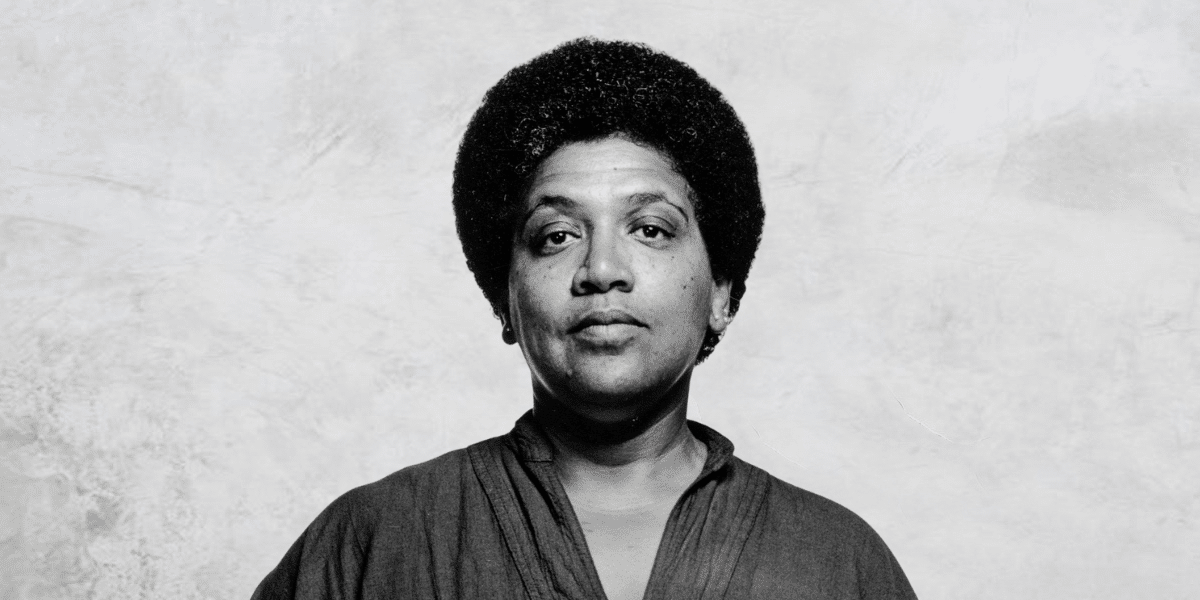
Big Thinker: Audre Lorde
Big thinkerPolitics + Human RightsSociety + Culture
BY The Ethics Centre 11 JAN 2024
Professionally a poet, professor and philosopher, Audre Lorde (1934-1992) also proudly carried the titles of intersectional feminist, civil rights activist, mother, socialist, “Black, lesbian [and] warrior.” She is also the woman behind the popular manifesto “the master’s tools will never dismantle the master’s house.”
Born Audrey Geraldine Lorde in New York City, to Frederic and Linda Belmar Lorde, on the 18th of February 1934, Lorde fell in love with poetry as a form of expression at a young age.
“I used to communicate through poetry,” she recalled in conversation with Claudia Tate for Black Women Writers at Work. “When I couldn’t find the poems to express the things I was feeling, that’s what started me writing poetry,” she said. Lorde was thirteen.
Alongside her education at Hunter High School in New York, and working on the school’s literary magazine, she published her first piece of literature in the 1951 April issue of Seventeen Magazine. She earned a Bachelor of Arts from Hunter College in 1959, preceding a master’s degree in library science in 1961 from Columbia University. Following that, Lorde worked as a librarian for public schools in New York City from 1961 to 1968, working her way to head librarian of Manhattan’s Town School. In 1980, Lorde and her friend, a fellow writer and activist, created a publishing house, ‘Kitchen Table: Women of Color Press.’ Throughout these years, Lorde was prolific and wrote some of her most recognised volumes of poetry. A full discography of her work can be found at the end of this article.
Authorship and legacy
Expression of self and personal philosophy through literature became a cornerstone of Audre Lorde’s life and one of her greatest contributions to the discourse on discrimination and equality today.
A proud feminist, Lorde’s authorship strived to offer an authentic depiction of the female experience; the good, the bad and the complex. She felt academic discourse on feminism was white and heterosexual centric, lacking consideration of the lived realities of Black and queer women. Thus, she put the stories of these women at the centre of her literature.
Lorde’s philosophy focussed particularly on intersectional discrimination and academic discourse’s inability to accommodate it. She revered differences amongst humans, arguing true equality can only be achieved through celebrating rather than homogenising our different identities.
Third Wave Feminism
Lorde was a prominent member of the women’s and LGBTQIA+ rights movements during the second wave of feminism. As a woman with many of her own labels, Lorde used her lived experience and literary expertise to shine a light on the experience and voices of other women with multiple signifiers. She implored society to confront racist feminism, the nuances of the Black female experience and the cognitive dissonance between educating yourself on feminism whilst not bearing witness to the experiences of all women, – particularly women of colour whose intellectual labour and contributions to such academia have been so routinely overlooked. Thus, helping kickstart the third wave of feminism, also spearheaded by another big thinker, Kimberle Crenshaw.
Through her words, Lorde aimed to acknowledge and capture the pain as well as the joy she felt as an openly queer Black woman. This bare-all intent and celebration of individuality is particularly felt in her work, The Cancer Journals and her subsequent public encouragement of other breast cancer survivors to wear their mastectomies on their chest, rather than accept prosthesis purely for aesthetic motivations. “It is that very difference that I wish to affirm… I lived it, I survived it, and wish to share that strength with other women.”
Philosophy on difference
Lorde was an advocate for difference amongst human beings. For her, difference was the key to eradicating discrimination and moving forward in unity. As we constantly reevaluate what it means to be human, what we hold dear and the ethical pillars we lean on to guide us, Lorde philosophised that it was vital we harness rather than fear that which separates us from our friends, peers and enemies. Rather than homogenising humanity, the future of equality relies on our ability to relate across differences. Finding community is not about conforming, it is about accepting. It must be an act of opening up, not of shutting down.
Lorde examined difference particularly through an intersectional feminist lens. Identifying and subverting the conditioning of women to view their differences as causes for separation and self-judgement.
What we need first, however, is courage. To have our beliefs and perspectives stretched and challenged as we begin the journey of embracing that which makes us different from those around us.
Intersectionality
Lorde was acutely aware of and vocal about the pressure on marginalised people to divide their identities in order to fight for recognition of their discrimination. Academia was constructed to examine, debate and interrogate ways of being. At the time, it was established by white men, and thus contributions to this school of thought were limited to the lived realities and perspectives of these men. As a result, the notion of a human norm came about, and this norm was white, male, heterosexual and often, but not always, wealthy, educated and upper class. Every deviation from this ideal was considered a handicap and treated as such.
In her speech at the New York University Institute for the Humanities, where she debuted her admonishment: “the master’s tools will never dismantle the master’s house,” Lorde cautioned people of colour and other marginalised demographics against the pressure to conform to the limited criteria of ‘acceptable’ laid out by discrimination discourse in white academia, in order to have their needs met. She argued fighting for equality within a system with the notion of a human ideal will only lead to disappointment. True and deeply entrenched equality can only happen through an entire paradigm shift; the unravelling of a human norm in the first place.

Ethics in your inbox.
Get the latest inspiration, intelligence, events & more.
By signing up you agree to our privacy policy
You might be interested in…
Opinion + Analysis
Society + Culture, Politics + Human Rights
What happens when the progressive idea of cultural ‘safety’ turns on itself?
Opinion + Analysis
Relationships, Society + Culture
Meet Joseph, our new Fellow exploring society through pop culture
Opinion + Analysis
Health + Wellbeing, Politics + Human Rights, Relationships
Ethics in a time of coronavirus
Opinion + Analysis
Business + Leadership, Politics + Human Rights, Science + Technology
Not too late: regaining control of your data
BY The Ethics Centre
The Ethics Centre is a not-for-profit organisation developing innovative programs, services and experiences, designed to bring ethics to the centre of professional and personal life.
Ethics Explainer: Altruism
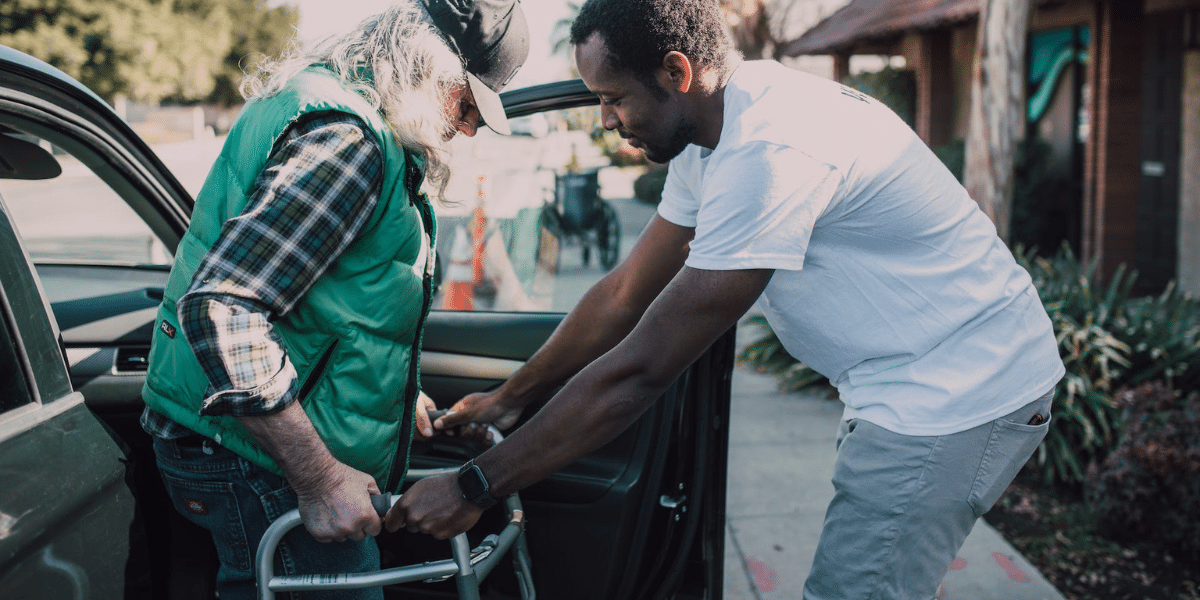
Amelia notices her elderly neighbour struggling with their shopping and lends them a hand. Mo decides to start volunteering for a local animal shelter after seeing a ‘help wanted’ ad. Alexis has been donating blood twice a year since they heard it was in such short supply.
These are all examples, of behaviours that put the well-being of others first – otherwise known as altruism.
Altruism is a principle and practice that concerns the motivation and desire to positively affect another being for their own sake. Amelia’s act is altruistic because she wishes to alleviate some suffering from her neighbour, Mo’s because he wishes to do the same for the animals and shelter workers, and Alexis’ because they wish to do the same to dozens of strangers.
Crucially, motivation is what is key in altruism.
If Alexis only donates blood because they really want the free food, then they’re not acting altruistically. Even though the blood is still being donated, even though lives are still being saved, even though the act itself is still good. If their motivation comes from self-interest alone, then the act lacks the other-directedness or selflessness of altruism. Likewise, if Mo’s motivation actually comes from wanting to look good to his partner, or if Amelia’s motivation comes from wanting to be put in her neighbour’s will, their actions are no longer altruistic.
This is because altruism is characterised as the opposite of selfishness. Rather than prioritising themself, the altruist will be concerned with the well-being of others. However, actions do remain altruistic even if there are mixed motives.
Consider Amelia again. She might truly care for her elderly neighbour. Maybe it’s even a relative or a good family friend. Nevertheless, part of her motivation for helping might also be the potential to gain an inheritance. While this self-interest seems at odds with altruism, so long as her altruistic motive (genuine care and compassion) also remains then the act can still be considered altruistic, though it is sometimes referred to as “weak” altruism.
Altruism can (and should) also be understood separately from self-sacrifice. Altruism needn’t be self-sacrificial, though it is often thought of in that way. Altruistic behaviours can often involve little or no effort and still benefit others, like someone giving away their concert ticket because they can no longer attend.
How much is enough?
There is a general idea that everyone should be altruistic in some ways at some times; though it’s unclear to what extent this is a moral responsibility.
Aristotle, in his discussions of eudaimonia, speaks of loving others for their own sake. So, it could be argued that in pursuit of eudaimonia, we have a responsibility to be altruistic at least to the extent that we embody the virtues of care and compassion.
Another more common idea is the Golden Rule: treat others as you would like to be treated. Although this maxim, or variations of it, is often related to Christianity, it actually dates at least as far back as Ancient Egypt and has arisen in countless different societies and cultures throughout history. While there is a hint of self-interest in the reciprocity, the Golden Rule ultimately encourages us to be altruistic by appealing to empathy.
We can find this kind of reasoning in other everyday examples as well. If someone gives up their seat for a pregnant person on a train, it’s likely that they’re being altruistic. Part of their reasoning might be similar to the Golden Rule: if they were pregnant, they’d want someone to give up a seat for them to rest.
Common altruistic acts often occur because, consciously or unconsciously, we empathise with the position of others.
Effective Altruism
So far, we have been describing altruism and some other concepts that steer us toward it. However, here is an ethical theory that has many strong things to say about our altruistic obligations and that is consequentialism (concern for the outcomes of our actions).
Given that, consequentialism can lead us to arguments that altruism is a moral obligation in many circumstances, especially when the actions are of no or little cost to us, since the outcomes are inherently positive.
For example, Australian philosopher Peter Singer has written extensively on our ethical obligations to donate to charity. He argues that most people should help others because most people are in a position where they can do a lot for significantly less fortunate people with relatively little effort. This might look different for different people – it could be donating clothes, giving to charity, volunteering, signing petitions. Whatever it is, the type of help isn’t necessarily demanding (donating clothes) and can be proportional (donating relative to your income).
One philosophical and social movement that heavily emphasises this consequentialist outlook is effective altruism, co-founded by Singer, and philosophers Toby Ord and Will MacAskill.
The effective altruist’s argument is that it’s not good enough just to be altruistic; we must also make efforts to ensure that our good deeds are as impactful as possible through evidence-based research and reasoning.
Stemming from the empirical foundation, this movement takes a seemingly radical stance on impartiality and the extent of our ethical obligations to help others. Much of this reasoning mirrors a principle outlined by Singer in his 1972 article, “Famine, Affluence and Morality”:
“If it is in our power to prevent something very bad from happening, without thereby sacrificing anything morally significant, we ought, morally, to do it.”
This seems like a reasonable statement to many people, but effective altruists argue that what follows from it is much more than our day-to-day incidental kindness. What is morally required of us is much stronger, given most people’s relative position to the world’s worst-off. For example, Toby Ord uses this kind of reasoning to encourage people to commit to donating at least 10% of their income to charity through his organisation “Giving What We Can”.
Effective altruists generally also encourage prioritising the interests of future generations and other sentient beings, like non-human animals, as well as emphasising the need to prioritise charity in efficient ways, which often means donating to causes that seem distant or removed from the individual’s own life.
While reasons for and extent of altruistic behaviour can vary, ethics tells us that it’s something we should be concerned with. Whether you’re a Platonist who values kindness, or a consequentialist who cares about the greater good, ethics encourages us to think about the role of altruism in our lives and consider when and how we can help others.

BY The Ethics Centre
The Ethics Centre is a not-for-profit organisation developing innovative programs, services and experiences, designed to bring ethics to the centre of professional and personal life.
Ethics in your inbox.
Get the latest inspiration, intelligence, events & more.
By signing up you agree to our privacy policy
You might be interested in…
WATCH
Relationships
Consequentialism
Opinion + Analysis
Relationships
The historical struggle at the heart of Hanukkah
Explainer
Relationships
Ethics Explainer: Stoicism
Opinion + Analysis
Business + Leadership, Politics + Human Rights, Relationships
Tim Soutphommasane on free speech, nationalism and civil society
11 books, films and series on the ethics of wealth and power
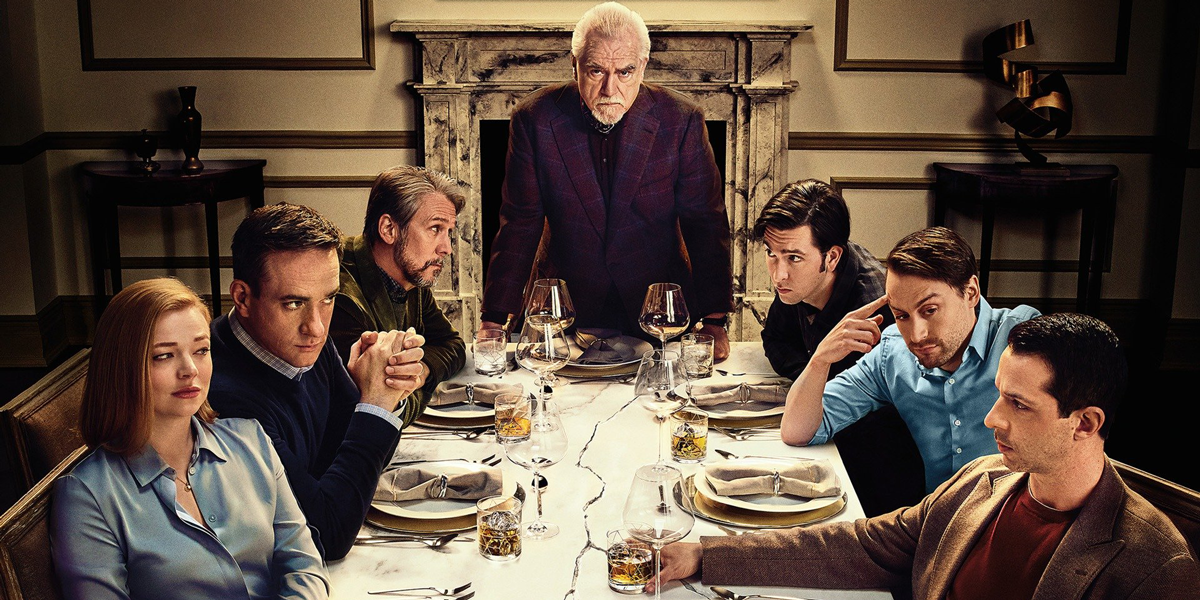
11 books, films and series on the ethics of wealth and power
Opinion + AnalysisSociety + Culture
BY The Ethics Centre 7 DEC 2023
They say power corrupts. And for good reason. Ethics is in constant tension with power. The more power or money someone has, the more they can get away with.
A central concern of money and power is how those who have it should be allowed to use it. And a central concern of the rest of us is how people with money and power in fact do use it.
Here are 11 books, films, tv shows and podcasts that consider the ethics of wealth and power:
Parasite
A Korean comedic thriller film about poverty, the contrast between the rich and poor and the injustice of inequality.
Succession
An American satirical comedy-drama series detailing a powerful global media and entertainment conglomerate. Run by The Roy family, the unexpected retirement of the company’s patriarch ignites a power struggle.
Animal farm – George Orwell
A satirical novel of a group of anthropomorphic farm animals who rebel against their human farmer, hoping to create a society where the animals can be equal, free, and happy.
Generation Less – Jennifer Rayner, FODI
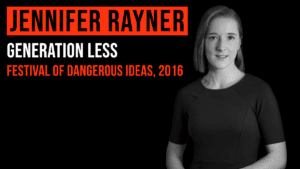
The Colonial Fantasy – Sarah Maddison
A call for a radical restructuring of the relationship between Aboriginal and Torres Strait Islander people and governments.
White Lotus
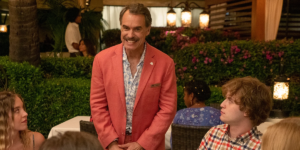
An American dark comedy-drama anthology series, which socially satires the various guests and employees of a resort, exploring what money and power will make you do.
The Deficit Myth – Stephanie Kelton
An exploration of modern monetary theory (MMT) which dramatically changes our understanding of how we can best deal with crucial issues ranging from poverty and inequality to creating jobs, expanding health care coverage, climate change, and building resilient infrastructure.
Squid game
A Korean survival drama series where hundreds of cash-strapped contestants accept an invitation to compete in children’s games for a tempting prize, but the stakes are deadly.
Entitled: How Male Privilege Hurts Women – Kate Manne
A vital exploration of gender politics from sex to admiration, bodily autonomy, knowledge, power and care. In this urgent intervention, philosopher Kate Manne offers a radical new framework for understanding misogyny.
The Lehman Trilogy – Stefano Massini
Originally a novel, and since adapted into a three-act play, The Lehman Trilogy tells the story of modern capitalism through the saga of the Lehman brothers’ bank and their descendants.
Life and Debt podcast
Produced by The Ethics Centre, Life & Debt is a podcast series that dives into debt, what role it has in our lives and how we can make better decisions about it.

Ethics in your inbox.
Get the latest inspiration, intelligence, events & more.
By signing up you agree to our privacy policy
You might be interested in…
Opinion + Analysis
Society + Culture, Politics + Human Rights
Who gets heard? Media literacy and the politics of platforming
Opinion + Analysis
Society + Culture
The Festival of Dangerous Ideas has been regrettably cancelled
Opinion + Analysis
Politics + Human Rights, Society + Culture
On truth, controversy and the profession of journalism
Opinion + Analysis
Health + Wellbeing, Society + Culture



